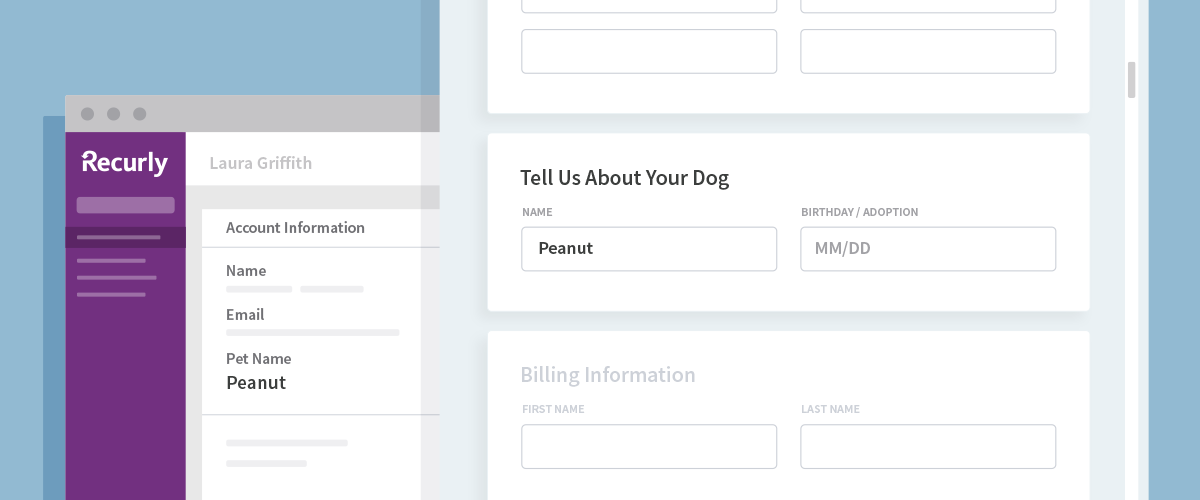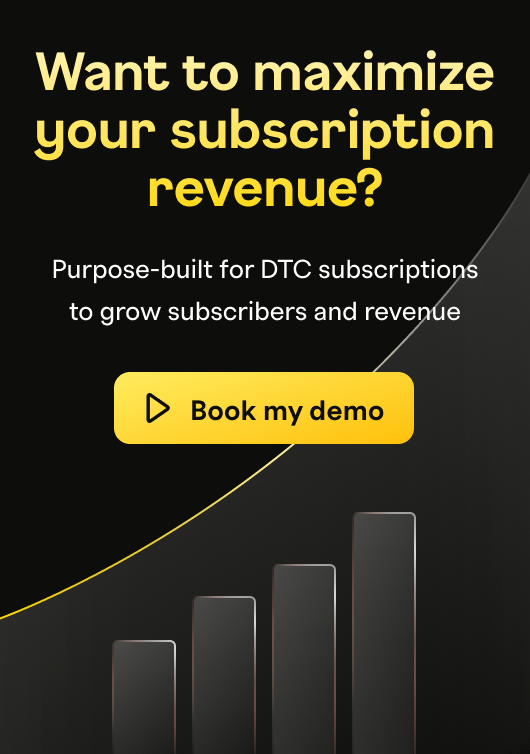Using Custom Fields to Connect Data Across Systems

Today’s businesses have access to a wealth of data that can help inform their decision-making. At the same time, to be useful, this abundance of data must be both accurate and accessible across disparate, disconnected systems. To address this need, Recurly offers custom data fields which can connect data across systems by associating identified data with either a specific subscription or a specific user. This improves data accuracy, creates efficiencies, and can help subscription business better serve subscribers’ needs.
Let’s look at some examples of how custom data fields can be used to connect data.
Internet of Things (IoT) subscription services
The Internet of Things utilizes “smart” devices that are able to collect data through sensors or other means. IoT devices are found in a variety of consumer products, such as internet-connected doorbells for improved home security and home automation systems such as smart thermostats. Cities and ports are increasingly looking to IoT to do things like move cargo more efficiently or alleviate parking and traffic jams.
Using custom fields, an IoT vendor that blends physical devices (such as a camera) with digital services (such as cloud recording) can store the device’s unique ID or serial number in Recurly. This allows a subscription to be associated with a particular device rather than a particular user. When a device joins the IoT vendor's network for the first time after activation, the vendor is able to instantly assess whether or not that device should be granted access based on the corresponding subscription status in Recurly.
“Box-of-the-month” subscription services
Recurly’s customers include a number of “box-of-the-month” services for things like pet toys, beauty products, specialty food items, pop culture collectibles, and more. Many of these services depend on customizing their offering to each subscriber’s preferences and uncovering insights that will help them ensure they are continually delighting their box recipients.
Vendors in this space can take advantage of Recurly’s custom fields feature to log relevant data, such as a pet’s name, breed or age, a recipient’s t-shirt size, or someone's tolerance for spicy foods. This vendor-specific metadata, while not critical to subscription billing, is nonetheless important to capture as it helps to support improved customer service and subscriber satisfaction. Another example might be a box service where each box is delivered in a specific sequence, with new subscribers starting out with the “first” box in, for example, a storytelling series. Custom fields could be used to identify which box different subscribers should get based on where they are in the sequence.
In short, whatever data is meaningful to your business, custom fields can be used to capture that unique data.
Custom fields and customer records
Several other applications of the custom fields feature are related to the Account (customer) record in Recurly. For those companies that sell to other businesses, custom fields can be used to “tag” an Account with a salesperson’s name or channel partner, so that the proper commission or payout can be made. Consumer-focused businesses that offer a referral program might create a custom field to track which subscribers are referring new subscribers and then reward the referrer using a coupon or credit through Recurly.
As these examples demonstrate, custom fields are an easy way to connect data in disparate systems and add more meaningful subscriber information that is relevant to your business and your subscribers’ needs. To learn more about how custom fields work, read our documentation. To learn more about Recurly, talk to a Recurly expert at (844) 732-8759 or sign up for a demo below.

